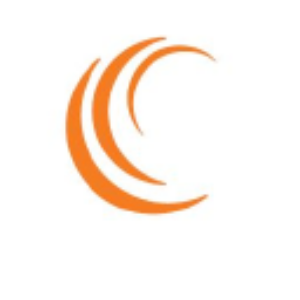FDA Grants Soligenix Orphan Drug Designation for the Treatment of Behçet's Disease after Reviewing Recent Phase 2 Clinical Study Results
Rhea-AI Summary
Soligenix (NASDAQ:SNGX) has received FDA orphan drug designation for dusquetide (SGX945) for the treatment of Behçet's Disease, following promising Phase 2a clinical results. This designation provides seven years of market exclusivity upon FDA approval and various financial benefits including government grants, FDA fee waivers, and tax credits.
The treatment targets a rare disorder affecting up to 18,000 people in the U.S. and approximately 1 million worldwide. The Phase 2 proof-of-concept study demonstrated clinically meaningful improvements in patients with oral aphthous ulcers due to Behçet's Disease, addressing an significant unmet medical need in this chronic auto-immune condition.
Positive
- Received FDA orphan drug designation for dusquetide in Behçet's Disease treatment
- Secured 7 years of market exclusivity upon potential FDA approval
- Gained access to financial benefits including grants, FDA fee waivers, and tax credits
- Demonstrated positive Phase 2a clinical results showing biological efficacy and safety
Negative
- None.
News Market Reaction – SNGX
On the day this news was published, SNGX gained 78.42%, reflecting a significant positive market reaction. Argus tracked a peak move of +134.0% during that session. Our momentum scanner triggered 53 alerts that day, indicating high trading interest and price volatility. This price movement added approximately $9M to the company's valuation, bringing the market cap to $21M at that time. Trading volume was very high at 4.3x the daily average, suggesting strong buying interest.
Data tracked by StockTitan Argus on the day of publication.
Provides SGX945 Seven Years of U.S. Market Exclusivity Upon FDA Approval
The
"Behçet's Disease is an area of unmet medical need, with up to 18,000 people in the
About Dusquetide
Dusquetide, the active ingredient in SGX945 (Behçet's Disease) and SGX942 (oral mucositis), is an innate defense regulator (IDR), a new class of short, synthetic peptides. It has a novel mechanism of action whereby it modulates the body's reaction to both injury and infection towards an anti-inflammatory, anti-infective, and tissue healing response. IDRs have no direct antibiotic activity but, by modulating the host's innate immune system responses, increase survival after infections caused by a broad range of Gram-negative and Gram-positive bacterial pathogens. Dusquetide also accelerates resolution of tissue damage following exposure to a variety of agents including bacterial pathogens, trauma, and chemo- and/or radiation therapy. Preclinical efficacy and safety have been demonstrated in numerous animal disease models including mucositis, colitis, macrophage activation syndrome as well as bacterial infections. In addition, potential anti-tumor activity has been demonstrated in multiple in vitro and in vivo xenograft studies.
Dusquetide has demonstrated safety and tolerability in a Phase 1 clinical study in 84 healthy human volunteers. In Phase 2 and 3 clinical studies with dusquetide in over 350 subjects with oral mucositis due to chemoradiation therapy for head and neck cancer, positive efficacy results were demonstrated, including potential long-term ancillary benefits.
Dusquetide has also demonstrated biological efficacy and safety in a Phase 2a pilot study in 8 patients with Behçet's Disease. The Phase 2a study was an open-label study designed to be highly comparable (e.g., study endpoints, inclusion-exclusion criteria) to the published Phase 3 study which was used to support marketing approval of apremilast (Otezla®) for oral ulcers in Behçet's disease. The primary endpoint in the Phase 3 apremilast study was the area under the curve (AUC) of the mean number of ulcers versus time. Using this same endpoint after 4 weeks of treatment, the SGX945 treated group had a
Soligenix has a strong intellectual property position in the IDR technology platform, including composition of matter for dusquetide and related analogs. Dusquetide was developed pursuant to discoveries made by Professors B. Brett Finlay, PhD and Robert Hancock, PhD of the University of
About Behçet's Disease
Behçet's Disease is commonly known as an inflammatory disorder of the blood vessels (vasculitis). Often first diagnosed in young adults, its effects and severity will wax and wane over time. Major signs and symptoms usually include mouth sores (approximately
Behçet's Disease is thought to be an auto-immune disease with both genetic and environmental factors. It is most common along the "Silk Road" in the
There is no cure for Behçet's Disease, rather treatments are prescribed to manage symptoms. Treatments may include both maintenance therapies and those specifically addressing flares (e.g., mouth ulcers, genital ulcers and leg ulcers). Corticosteroids are generally applied topically to sores and as eyedrops and may also be given systemically to reduce inflammation. Although used frequently, they have limited efficacy over the long-term and have significant side effects that become more concerning with more chronic use. Genital ulcers are often associated with significant genital scarring while leg ulcers can result in a post-thrombotic syndrome. Other treatments for Behçet's Disease flares involve suppressing the immune system with drugs (e.g., cyclosporine or cyclophosphamide). These drugs come with a higher risk of infection, liver and kidney problems, low blood counts and high blood pressure. Finally, anti-inflammatory drugs are also used, including anti-TNF medications. The only approved drug in Behçet's Disease is apremilast, which is used as a maintenance therapy to prevent formation of oral ulcers. Unfortunately, apremilast must be used continuously to be effective and is associated with both high cost and side effects including diarrhea, nausea, upper respiratory tract infection and headache.
About Soligenix
Soligenix is a late-stage biopharmaceutical company focused on developing and commercializing products to treat rare diseases where there is an unmet medical need. Our Specialized BioTherapeutics business segment is developing and moving toward potential commercialization of HyBryte™ (SGX301 or synthetic hypericin sodium) as a novel photodynamic therapy utilizing safe visible light for the treatment of cutaneous T-cell lymphoma (CTCL). With successful completion of the second Phase 3 study, regulatory approvals will be sought to support potential commercialization worldwide. Development programs in this business segment also include expansion of synthetic hypericin (SGX302) into psoriasis, our first-in-class innate defense regulator (IDR) technology, dusquetide (SGX942) for the treatment of inflammatory diseases, including oral mucositis in head and neck cancer, and (SGX945) in Behçet's Disease.
Our Public Health Solutions business segment includes development programs for RiVax®, our ricin toxin vaccine candidate, as well as our vaccine programs targeting filoviruses (such as Marburg and Ebola) and CiVax™, our vaccine candidate for the prevention of COVID-19 (caused by SARS-CoV-2). The development of our vaccine programs incorporates the use of our proprietary heat stabilization platform technology, known as ThermoVax®. To date, this business segment has been supported with government grant and contract funding from the National Institute of Allergy and Infectious Diseases (NIAID), the Defense Threat Reduction Agency (DTRA) and the Biomedical Advanced Research and Development Authority (BARDA).
For further information regarding Soligenix, Inc., please visit the Company's website at https://www.soligenix.com and follow us on LinkedIn and Twitter at @Soligenix_Inc.
This press release may contain forward-looking statements that reflect Soligenix's current expectations about its future results, performance, prospects and opportunities, including but not limited to, potential market sizes, patient populations, clinical trial enrollment, the expected timing for closing the offering described herein and the intended use of proceeds therefrom. Statements that are not historical facts, such as "anticipates," "estimates," "believes," "hopes," "intends," "plans," "expects," "goal," "may," "suggest," "will," "potential," or similar expressions, are forward-looking statements. These statements are subject to a number of risks, uncertainties and other factors that could cause actual events or results in future periods to differ materially from what is expressed in, or implied by, these statements, and include the expected amount and use of proceeds from the offering and the expected closing date of the offering. Soligenix cannot assure you that it will be able to successfully develop, achieve regulatory approval for or commercialize products based on its technologies, particularly in light of the significant uncertainty inherent in developing therapeutics and vaccines against bioterror threats, conducting preclinical and clinical trials of therapeutics and vaccines, obtaining regulatory approvals and manufacturing therapeutics and vaccines, that product development and commercialization efforts will not be reduced or discontinued due to difficulties or delays in clinical trials or due to lack of progress or positive results from research and development efforts, that it will be able to successfully obtain any further funding to support product development and commercialization efforts, including grants and awards, maintain its existing grants which are subject to performance requirements, enter into any biodefense procurement contracts with the
![]() View original content to download multimedia:https://www.prnewswire.com/news-releases/fda-grants-soligenix-orphan-drug-designation-for-the-treatment-of-behcets-disease-after-reviewing-recent-phase-2-clinical-study-results-302531119.html
View original content to download multimedia:https://www.prnewswire.com/news-releases/fda-grants-soligenix-orphan-drug-designation-for-the-treatment-of-behcets-disease-after-reviewing-recent-phase-2-clinical-study-results-302531119.html
SOURCE SOLIGENIX, INC.








